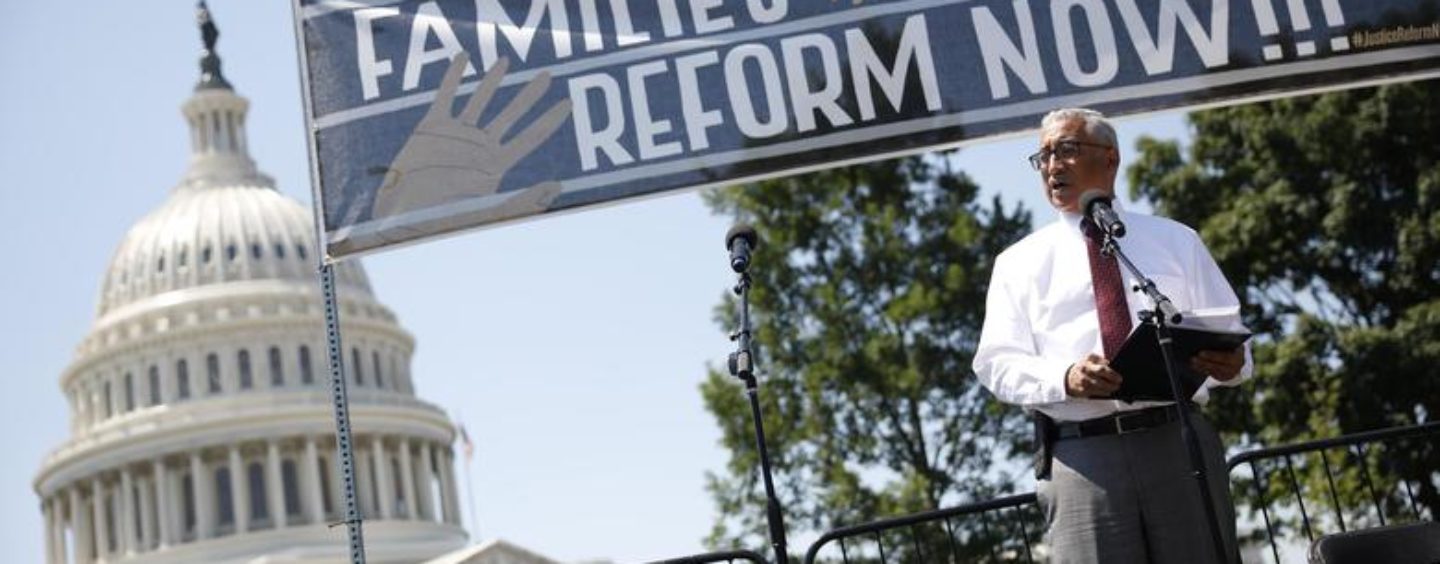
What You Need to Know About the Criminal Justice Reform Bill Being Debated in the Senate
by Kathy Grear 12/19/2018The U.S. Senate is right now considering bipartisan legislation – the First Step Act (S. 2795) – that represents a small but important step toward combating mass incarceration in our country.
As you know, we’re committed to reforming our criminal justice system and eliminating its deeply rooted racial disparities. That’s why we’re closely watching the Senate debate and why we want to keep you informed about this bill.
Here’s some of what the First Step Act would do, if passed in its current form:
- Ease federal mandatory minimum sentencing laws. It would give judges more discretion to exempt people from mandatory minimum sentences and would ease the severity of mandatory sentences for multiple drug convictions.
- Retroactively apply drug sentencing reforms from the 2010 Fair Sentencing Act. The Fair Sentencing Act was instrumental in reducing the stark sentencing disparities between crack cocaine and powder cocaine that disproportionately affected African Americans. This reform is estimated to affect 2,600 people currently in prison.
- Allow incarcerated people the opportunity to earn more credits for good behavior. Expanded credits for good behavior would allow people to move earlier into supervised release programs, such as halfway homes or house confinement. As many as 4,000 people would be affected immediately.
- Provide resources for programs that address recidivism and successful re-entry. Such programs would increase opportunities for education and job training.
- Improve certain prison conditions. The bill would ban the practice of shackling pregnant and postpartum women, and would move detained people to facilities closer to their families.
Here’s what the First Step Act would not do, if passed in its current form:
- Does not apply beyond the scope of the federal prison system. This legislation has no impact on state sentencing laws or on people who are in state prisons or local jails, or on parole or probation. There are currently about 181,000 people in federal prison, out of a total of 2.1 million incarcerated people in the United States.
- Does not apply to people in federal prisons who are considered “violent offenders.” People determined to be a risk to public safety are exempted from many of the benefits of this legislation, which endorses the use of a risk assessment tool that many consider to be racially biased.
- Does not address people who are being detained in federal prisons on criminal charges related to immigration. The approximately 11,000 people currently being held in federal prison on criminal violations related to immigration law, such as re-entry after removal, would not be affected by the bill’s provisions, such as “good-time” credits that would benefit others.
- The First Step Act does not fully address racial disparities in federal sentencing.
While aspects of this legislation – such as sentencing reform and improving prison conditions – align with our reform goals, there are many other areas where the bill falls short.
Currently, the Senate is considering amendments, and final passage could come as soon as this evening.
Regardless of the outcome, we will continue to press for wider reforms. Thank you for supporting this vital work.
Sincerely,
Your friends at the SPLC
| Matching Gift Challenge: To help kick-start our work next year, a group of our supporters has committed $800,000 to match – dollar-for-dollar – your Year-End Gift. Please take advantage today of this chance to double the impact of your contribution. |


